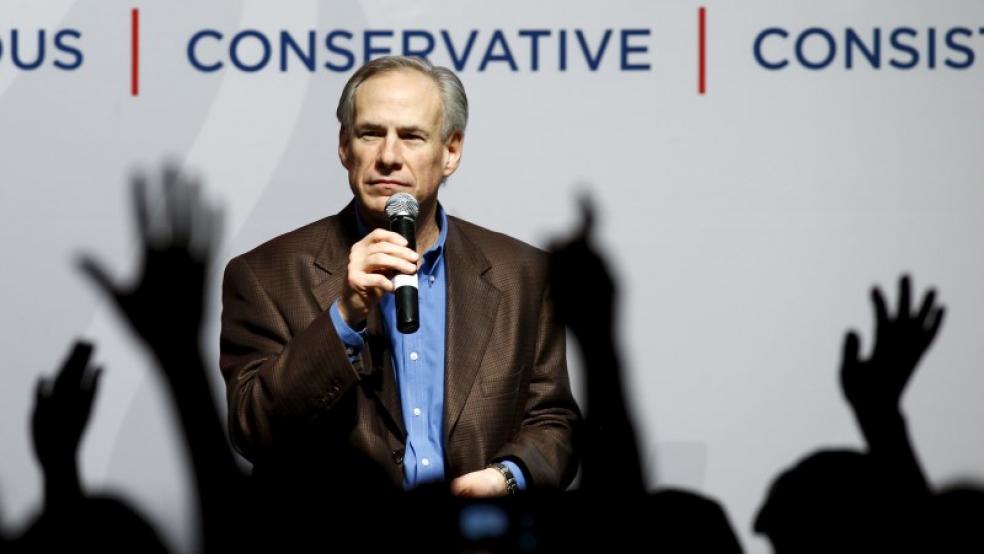Donald Trump has been sounding warnings about Ted Cruz’s eligibility for the presidency, putting his closest opponent on the defensive over the past week. Should Cruz persist in seeking the presidency without establishing once and for all that his birth in Canada isn’t disqualifying, Trump warns, he’s setting himself up for an avalanche of lawsuits.
“There’s a big question mark on your head … you can’t do that to the party,” Trump said during Thursday night’s debate.
Related: Trump Shines in a Substance-Free GOP Debate
On Friday morning, Trump senior adviser Dan Scavino used Twitter to post the first page of a lawsuit, filed Thursday, in United States District Court for the Southern District of Texas in Houston, along with the warning, “Looks like they are underway – just the beginning.”
.@realDonaldTrump had mentioned lawsuits were headed Cruz's way. Looks like they are underway - just the beginning. pic.twitter.com/k3tmb9yR6a
— Daniel Scavino Jr. (@DanScavino) January 15, 2016
Scavino, however, didn’t include a link to the entire court filing. And once you get a look at the original document, it’s easy to see why.
The page Scavino posted might be the only one in the entire filing without egregious grammatical errors, spelling mistakes and utterly incoherent arguments.
The lawsuit, filed by Houston attorney Newton Boris Schwartz, purports to be a request for declaratory judgment on the issue of Cruz’s eligibility. Schwartz says that he acts on behalf of himself as well as a representative of a class of plaintiffs that includes all registered voters in the United States.
Related: Trump’s Birther Attacks on Cruz Gain Some Surprising Support
Right out of the gate, the reader is treated to this: “Out of the veritable deluge of public opinions on this issue a majority presently appear to agree that American citizens may agree that while Defendant Cruz is not a natural born U.S. citizen, he may be eligible. Regrettably a majority of American citizens, including constitutional scholars, may disagree with.”
Shortly thereafter comes this gem: “The U.S. Constitution is not a popularity document for fair weather only. The first Chief Justice John Jay was equivocal in his informal contemporaneous writing but his first Supreme Court never ruled on it because it was never presented. Justice Storey in 1833 for the Supreme Court did not rule on it. It is now. “
And this is still only page 2 out of 28.
In his Twitter post, Scavino said that this lawsuit was “just the beginning.” If the Trump campaign actually expects this issue to go anywhere, it had better hope so.





